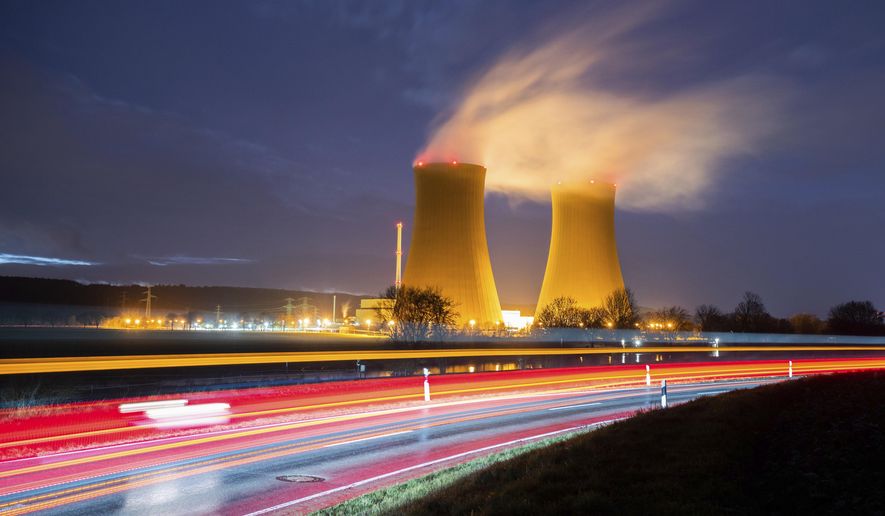OPINION:
In late June, Robert Habeck, the Economy Minister of Germany announced in an effort to reduce its consumption of natural gas — about two-thirds of which it imports from Russia — the Germans would increase their reliance on coal-burning power plants to generate electricity.
This action was driven by the fact that, despite their best efforts, natural gas storage facilities in Germany are only about 57% full. That means that Germany is facing a winter (again) in which natural gas supplies used for heating would be very tight.
Consequently, natural gas, which is being used to generate electricity, needs to be stored now and used to heat homes in the winter. The slack will be taken up by coal-fired power plants.
What makes this especially odd is that in January of this year — with the conflict between Ukraine and Russia and its attendant effects on Germany’s energy system clearly visible on the horizon — Germany went ahead and retired three of their remaining six nuclear power plants, which provided 4 gigawatts of electricity.
In a rational world, Germany would have simply kept the plants operating. They had to suspect that war on the continent would likely lead to a situation where Russian natural gas would be unavailable or undesirable.
To add complexity to the situation, the Germans also have had a very recent experience with wind power underperforming. Such underperformance and the consequent need to burn more natural gas to make electricity happened just last year, and it resulted in both spiraling natural gas and electricity prices. This is in a country where both electricity and natural gas already cost three times what they cost in the United States.
Given the likelihood of interruption of the import of Russian natural gas, and last year’s demonstration of the problem with wind generation, the least rational action was to close the nuclear power plants in January of this year. But in response to pressure from environmentalists, way back in 2011, Angela Merkel had set a national goal of phasing out nuclear power by the end of 2022. So that was that.
Why would Germany continue to follow an energy plan that no longer makes any sense? A plan so deficient that it touched off a global scramble for natural gas that has led to higher energy prices and higher fertilizer prices which have led directly to higher food costs globally?
The reality is that the environmental movement, especially in Europe, was really born as an anti-nuclear movement, and many environmentalists consider the marginalization of nuclear power as the movement’s most significant achievement. To revisit the closing of the nuclear power plants is simply not politically tenable in Germany, no matter what the contextual facts might be.
In comparison, it seems even the most strident here in the states can adapt to facts.
In California, Gov. Gavin Newsom, under pressure during a primary campaign from Michael Shellenberger, a pro-nuclear environmentalist, suggested that perhaps the planned closure of Diablo Canyon nuclear power should be reconsidered. Diablo Canyon, whose operating license expires in 2025, is the only power plant currently operating in California, a state which always seems to be under the shadow of potential blackouts.
Additionally, in his most recent budget, Mr. Newsom proposed at least $5 billion to create a reliability fund, which would be used to purchase natural gas power plants when the state experiences very high demand or is otherwise at risk of blackouts.
The lesson of all this (apart from that it is better to live in America than Germany) is that facts should and do matter, even to Californians.
Germany should reconsider its ill-advised energy policies, especially its wrongheaded decision to phase out nuclear power.




Please read our comment policy before commenting.